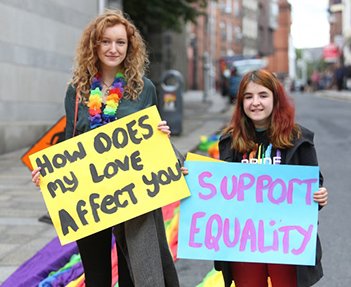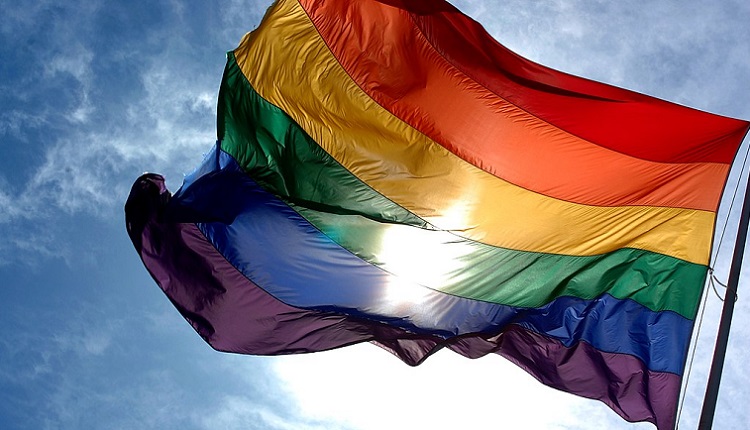Unhealthy Attitudes | LGBTQ discrimination in healthcare
When you get to the root of a problem or issue, you usually find what’s causing it. In the case of prejudice, whether it’s racial, ethnic, or sexual, what you’ll find fueling that prejudice is usually ignorance and fear.
Prejudice often leads to discrimination. This can have wide-ranging effects, from difficulty finding a job to trouble getting medical care — not to mention the effects it has on self-esteem.
Those in the LGBTQ community know all too well the obstacles they face, especially as it pertains to discrimination from healthcare providers. This discrimination does more than just limit their ability to get proper medical care.
The world has a way of acting as a mirror. The way people look at us and respond to us contributes much to our own sense of self-worth, even though the internal voice should always be the loudest. And for LGBTQ individuals, this can sometimes result in shame and internalized homophobia, which can lead to self-destructive tendencies.
In this article, we’re going to look at why so many in the LGBTQ community lack access to healthcare, what the barriers are, and what is being done, if anything, to assure tomorrow’s outlook is brighter than today’s.

Why LGBTQ Lack Access to Medical Care?
In a civilized society, there ought to be unspoken truths — things that don’t need to be said and things that all can agree upon. Such as this: People who need medical care should be able to get it without fear or worry of being harassed, mistreated, or even denied that care.
Sadly, this isn’t the case. For those in the LGBTQ community, it’s quite the opposite. Healthcare providers are often reluctant to provide the care they need, and insurance companies pile on with their own discriminatory practices.
A 2010 report by Lambda Legal found that many LGBTQ individuals face multiple issues, including disrespectful attitudes and outright refusal of care. Dr. Alexis Chavez, a resident psychiatrist at UC Health and the leader of the first LGBTQ clinic in Colorado, says the situation has improved over the years, but not as much as she’d like.
“The report from Lambda Legal was published in 2010. This was before gay marriage was legalized. It also would have been before Medicare removed the transgender exclusionary ban, so I think some things are certainly improving. But, I think that we definitely have quite a ways to go from here.”
The report revealed that 10 percent of those polled had dealt with harsh language from medical professionals. The same percentage said healthcare professionals refused to touch them. More than 12 percent indicated they were blamed for their health problems. And half of all those who responded to the poll said that they faced some form of discrimination when dealing with healthcare personnel.
This negligence is creating a cyclical paradigm, where the added stress of not receiving care is causing more health problems. And the lack of proper care regarding these health issues is causing more stress.
The result of which is causing more heart disease, high blood pressure, and other ailments for lesbian, gay, bisexual, and transgender people.

To compound the problem, many LGBTQ individuals have been suffering from employment inequality for years and possibly decades, which makes them more dependent on insurance coverage for care. The Williams Institute at the UCLA School of Law found that an estimated 23 percent of gay and bisexual American males live below the poverty line.
Gilbert Gonzalez, an assistant professor at Vanderbilt University School of Medicine, says that the added stress the patients feel is a huge concern, along with how they deal with that stress.
Gonzalez co-authored a study involving more than 68,000 adults in the U.S. that compared the health risks of homosexual and bisexual adults to those of heterosexual adults. The study revealed that homosexual and bisexual adults drink and smoke more than their heterosexual counterparts.
Gonzalez says these results indicate that smoking and drinking may be a coping mechanism and that they are likely “drowning feelings by self-medicating.”
What Is Being Done?
The Affordable Care Act was established in 2010 during the Obama administration. It prohibits healthcare providers and insurance companies from discriminating against people on the basis of gender identity and sex-related stereotypes ? specifically section, or rule, 1557 of the ACA.
Not that it did much good. But it was a step in the right direction.
On August 23, 2016, a group of conservative religious organizations and eight states filed a lawsuit against the Department of Health and Human Services (HHS). The suit claims that the protections in rule 1557 would require doctors to perform treatments that violated their religious beliefs.
In December of 2016, a federal judge issued an injunction prohibiting the HHS from enforcing rule 1557.
On May 2, 2017, the Trump administration announced that rule 1557 was under review.
In August of that same year, the Trump administration announced that the HHS was drafting a notice to roll back the rule.
Since then, the HHS has proposed regulations that would give healthcare providers a lot of latitude to discriminate or even refuse key services to members of the LGBTQ community on the grounds of moral or religious objection.

Research continues to reveal what’s already painfully obvious: that LGBTQ individuals, particularly transgender individuals, face high rates of discrimination from healthcare providers.
A 2017 report by the Center for American Progress revealed similar findings as that 2010 report by Lambda Legal. In other words, the more things change, the more they stay the same.
Insurance companies aren’t in the business of paying out when they don’t have to. A cynical stance might be to suggest that they’ll do everything they can to avoid paying when possible. However, there are a few that have been more supportive and inclusive when it comes to the LGBTQ community.
Shopping for insurance can be much more difficult for same-sex partners than it is for heterosexual couples. Insurify.com recommends finding an insurance company that treats your marriage or union the same as they would any heterosexual marriage or union.
“I would say that there’s certainly still discrimination, and on a number of different levels,” says Chavez.
“For many years, even though I had health insurance, it refused to cover any care for me. That’s one reason why, here at UCHealth, we started a clinic specifically for LGBTQ folks at the mental health clinic.”
Be the Change You Wish to See in the World
Mahatma Gandhi once said, “A nation’s greatness is measured by how it treats its weakest members.” Those with the least power are those who most need our help, and it begins as individuals. It begins by understanding that:
Different isn’t scary.
Different isn’t wrong.
Different is just different.
No matter who you are, it’s important to find good role models. But it’s even more important for people struggling with identity issues and sexual discrimination.
The good news is that change is coming. If history has taught us anything, it’s that a generation can make a huge difference. It did in regards to gender equality. It did for racial equality. It’s just a shame that we have to wait so long for something that feels so basic, something that should be automatic: empathy for our fellow human beings.
